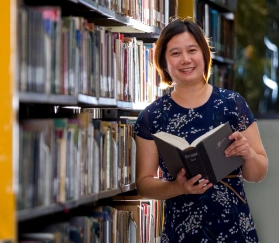Mendiola Teng-Calleja
Transforming local government is critical to developing countries like the Philippines. Local government units (LGUs) grapple with problems related to poverty, peace and order, social vices, as well as environmental change and natural disasters. Many LGUs are burdened by bureaucracy or red tape, limited financial and human resources, as well as corruption. On top of these, apathy from external (community) as well as internal (employees) stakeholders continue to challenge the LGUs. These daunting problems gathered through interviews with leaders and employees in our multi-case study of nine local government units (LGUs) in the Philippines that have undergone successful transformation served as impetus for change.
How did the LGUs transform themselves?
The transformations of the LGUs appear to have been catalyzed by three inter-related elements: vision, LGU leadership, and citizen engagement. The LGUs developed a vision that was typically articulated first by the governor or mayor (local chief executive/LCE). In turn, these leaders engaged and rallied the citizens around this vision of change.
Leadership played a critical role in initiating and sustaining transformation across the LGUs. Aside from having a clear vision for the local government, the LCEs likewise demonstrated competence in driving the program of government; showed effective management skills especially in planning, systematizing work and monitoring output; was visible and accessible to the citizens; as well as modelled credibility and ethical behaviors. The local government leaders in the nine LGUS were also risk-takers that demonstrated political will and courage in upholding the common good.
The LGU leaders ensured the success and sustainability of their change initiatives by ensuring citizen engagement. The local governments instituted mechanisms to counter apathy and promote participation by citizens. These included consultative planning, community consultations through public hearings and feedback mechanisms, volunteer involvement in LGU projects, as well as forming sectoral organizations and alliances. One leader shared that their roads “…were mostly rough roads. So when there was a road project, we called on the neighboring barangays who would eventually benefit from it to work on the project… They were the ones who constructed the roads while we provided them food. The money intended to pay for labor was reallocated to buy materials. So instead of constructing a one-kilometer road, we were able to build longer ones because we did not have to pay for labor. It’s the people who did it.”
In line with the leaders’ and the citizens’ vision of change, the LGUs in the study focused their efforts on transformation or reform in the following key areas: improvement in systems and organizational structure, culture-building, human resource development, as well as policy and program development. Ensuring that transformation initiatives will be institutionalized entailed reorganization and the creation of new units and positions. All nine LGUs engaged in efforts to improve processes and procedures by enabling equal and efficient access to government services mostly through information and communication technologies. To address corruption and red tape as well as promote transparency in service, the LGUs instituted systems for results-based performance management. There were also deliberate and regular efforts to monitor and assess projects.
Leaders in almost all of the LGUs mentioned culture-building as critical in managing and sustaining change. As such the leaders engaged in efforts to promote a culture of service, professionalism, discipline, continuous improvement, and pride among LGU employees. Changing the culture was not only necessary from within the LGU. It was also critical to change the mindset and behaviors of their citizens. One of the LGU leaders expressed that “The greatest challenge is (changing) the mindset. Culture is one of the most important things in getting what we want to achieve and in going to our chosen path. Culture resets the perspectives of people”.
Infrastructure development (such as building farm-to-market roads) was among the main priorities of the LGUs. This was supported by numerous programs to spur employment, livelihood, and other economic activities. The reforms as well as new projects/programs were backed by ordinances and executive orders to make sure that these would be continued by future leaders.
Although the LGUs’ context and priorities varied, the changes reported by the various LGU informants suggested common outcomes related to local governance (transparency and democracy), quality of life (social equity), and citizenship (sense of pride). Aside from heightened engagement and vigilance among the people, success is seen in the remarkable reduction in poverty incidences and the productive economic life of the community. There was also an increased sense of pride among the citizens.
Transforming local governments in the Philippines seemed like squaring a circle. Yet the stories of the LGUs illustrated how the confluence of vision, leadership and citizen engagement can make it happen.
Proposed Model for transforming Local Government Units:

This post was based on a journal article titled “Transformation in Philippine local government” written by Mendiola Teng-Calleja, Ma. Regina M. Hechanova, Ramon Benedicto A.Alampay, Nico A. Canoy, Edna P. Franco & Erwin A. Alampay published in Local Government Studies, 2017. The paper was commended for the Local Government Studies 2017 John Stewart Prize.
 Mendiola Teng-Calleja is an Associate Professor at the Psychology Department of the Ateneo de Manila University. She is also the Director for Organization Development and Human Resources Solutions of the Ateneo Center for Organization Research and Development. Her research interests include organization psychology, organization development, and humanitarian work psychology.
Mendiola Teng-Calleja is an Associate Professor at the Psychology Department of the Ateneo de Manila University. She is also the Director for Organization Development and Human Resources Solutions of the Ateneo Center for Organization Research and Development. Her research interests include organization psychology, organization development, and humanitarian work psychology.